
I believe I have most of them memorized. I’m sure Sheldon could tell us precisely how many… he has an eidetic memory he keep reminding his colleagues and viewers.
Does he? Could he be wrong [God forbid]?
STARTING WITH DEFINITIONS
The very fact that, across the board, there seem to be inconsistencies in dictionary definitions of both terms (eidetic and photographic memory), does not bode well … we’re not discussing an exact science. Some define the terms to be exactly the same; some not quite.
| Marked by or involving extra-ordinary accurate and vivid recall especially of visual images | Merriam Webster | An unusual ability to remember things completely and exactly as they were seen, read, etc. |
| Oxford Dictionary | The ability to remember things accurately in great detail after seeing them. |
| The ability to recall an image from memory with high precision for a brief period after seeing it only once, without using a mnemonic devices. | en.wikipedia.org | Referring to the ability to recall pages of text or numbers, or similar, in great detail. |
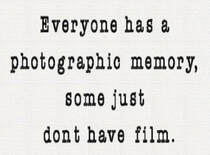
Do we score one point for Sheldon or not?
Apparently Eidetic memory is a real phenomenon, but in relation to images. Dr. Cooper and his writers imply that he can remember everything he ever saw [images and words] and heard. But, sadly, that is not the case. The reader scores three points if he remembers even two of the definitions above.
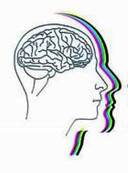
Eidetic memory is the ability to see an object soon after you look away, some claim in great detail. For most people, the image lasts mere seconds or less than one second; longer for someone who is eidetic.
One of the difference between ordinary mental imagery and eidetic images is the that the eidetic images are externally projected, experienced as "out there" rather than in the mind. This form of memory is controlled primarily by the posterior parietal cortex of the parietal lobe of the brain, the part that processes visual stimuli and retains images.

Basley writing for betterhelp.com/advice/memory/. Image Source: shortform.com/photographic-and-eidetic-memory/
Contrary to Beasley’s statement, current scientific consensus says the length of time any memory stays in short-term is 20 to 30 seconds. According to science.howstuffworks.com/ “Short-term memory has a fairly limited capacity; it can hold about seven items for no more than 20 or 30 seconds at a time.” https://science.howstuffworks.com/life/inside-the-mind/human-brain/human-memory2.htm
Perhaps individuals with eidetic memory are able to retain memories of images in short term memory for a much longer period of time that the average Joe.
The amount of research in this field is limited and "The Truth" out there may prove to be different some day, but so far eidetic memory is found in 2 to 10% of children from age 6 to twelve, but not in adults.
Author Andres Hudmon suggests that “Children possess far more capacity for eidetic imagery than adults, suggesting that a developmental change (such as acquiring language skills) may disrupt the potential for eidetic imagery.“ psy-minds.com/what-is-eidetic-memory/
Sheldon loses two points.
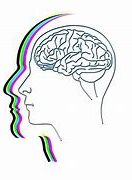
Photographic memory is the ability to recall an image for a much longer period. Merriam Webster’s definition: “Photographic Memory: an unusual ability to remember things completely and exactly as they were seen, read, etc.”
The research on this phenomenon is even less than on eidetic memory. The act of remembering everything ever heard, seen, or smelled forever is not possible, according to scientists. Even using a more restrictive definition of time and capacity, there is no scientific evidence to backup the existence of a photographic memory. Only one case of its existence was recorded in scientific literature, and the research has some holes in it.
Even those who do believe photographic memory exists, concede that individuals with photographic memories may not retain memories for a long period. Most photographic memories only last a few months at most, as they are not relayed to long-term memory. [This last claim makes me wonder how they would know that.]
It appears that photographic Memory is still within the realm of science fiction for now.
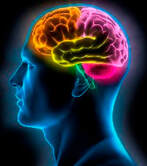
Maybe Dr. Cooper’s memory, instead of eidetic, is another case of Hyperthymesia.
Hyperthymesia, called Highly Superior Autobiographical Memory, is the condition of possessing an extremely detailed autobiographical memory. People with Hyperthymesia remember an abnormally vast number of their life experiences – some say every day of their lives -- in great detail, as well as public events that are personally significant to them.
There are only 25 people identified with this ability [who are known to science] and one of them is an actress, former Taxi star Marilu Henner. Individuals affected explain their memories as uncontrollable associations when exposed to a trigger; something they see, hear, eat, etc. Once triggered, the memory comes without hesitation or conscious effort.
The condition was not identified, as far as science was concerned, until 2006, by a team of researchers at the University of California who were working with a woman who could recall an impossible number of events in her life, with dates and details. The team discovered that people with hyperthymesia spent an unnaturally long period of time thinking about their past.
Research has shown that although these individuals have remarkable memories about their personal life, they do not demonstrate any unusual powers of memory in other ways. In fact, they often have a poorer than average memory for other information.
TAKE AWAY
We may have a real Dr. Sheldon Cooper with us, nor are we capable, yet, of photographic memories, but never underestimate the power and versatility of the human mind.
Just sayin’.
https://simple.wikipedia.org/wiki/Photographic_memory#:~:text=From%20Simple%20English%20Wikipedia,%20the%20free%20encyclopedia%20A,somewhat,%20but%20stress%20the%20recall%20of%20visual%20information.
https://brainmanagement.com/the-difference-between-eidetic-memory-and-photographic-memory/#:~:text=There%20is%20no%20difference%20between%20the%20two%20when,would%20be%20the%20visual%20compone
https://www.betterhelp.com/advice/memory/difference-between-eidetic-memory-and-photographic-memory/
https://en.wikipedia.org/wiki/Eidetic_memory
https://theydiffer.com/difference-between-eidetic-and-photographic-memory/
https://www.semicoop.com/comic/eidetic-memory/
https://sites.psu.edu/siowfa15/2015/09/23/is-photographic-memory-real-2/#:~:text=So%20in%20the%20end%2C%20photographic%20memory%20is%20real%2C,comment%20on%20this%20post%20and%20talk%20about%20it%21
https://www.magneticmemorymethod.com/eidetic-memory/#:~:text=The%20scientific%20evidence%20in%20support%20of%20eidetic%20memory,had%20it,%20but%20this%20is%20difficult%20to%20prove.
https://www.scientificamerican.com/article/is-there-such-a-thing-as/
https://www.shortform.com/blog/difference-between-photographic-and-eidetic-memory/
my.ilstu.edu/~dmmcbri/pics.html
https://science.howstuffworks.com/life/inside-the-mind/human-brain/human-memory2.htm
https://psy-minds.com/what-is-eidetic-memory/#:~:text=By%20contrast,%20photographic%20memory%20may%20be%20defined%20as,information%20and%20then%20recite
https://www.godupdates.com/former-taxi-star-marilu-henner-autobiographical-memory/#:~:text=One%20Of%20Twelve%20Marilu%20Henner%20has%20what%E2%80%99s%20called,her%20role%20on%20Taxi,%20which%20aired%20from%201978-1983.
https://www.blogarama.com/arts-and-entertainment-blogs/1282742-fact-everything-blog/20260174-hyperthymesia
http://affinitymagazine.us/2019/01/06/the-real-life-perfect-memory-hyperthymesia/#:~:text=Hyperthymesia%20was%20discovered%20in%202006,%20by%20a%20team,to%20recall%20a%20seemingly-impossible%20number%20of%20personal%20events.
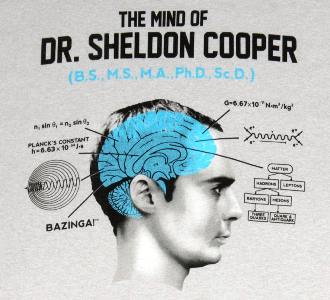
 RSS Feed
RSS Feed